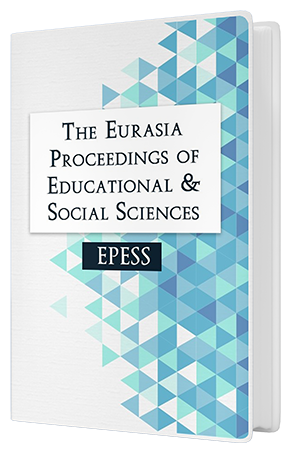SELF-REGULATION AND INTERACTIVITY TYPES AS THE PREDICTORS OF LEARNER SATISFACTION WITH FLIPPED COURSES: EVIDENCE FROM A VOCATIONAL COLLEGE
Keywords:
Flipped course, interactivity, self-regulation, satisfactionAbstract
Learner satisfaction, which implies learners’ positive perceptions of their learning experiences in a particular learning environment, is assumed to be a critical indicator of academic achievement as well as the effectiveness of a method. Flipped courses, receiving a growing interest among contemporary instructional designs, appear to be a promising pedagogical model that entails high learner satisfaction through a variety of features. One is related to learners’ self-management of their own learning processes throughout the courses. The other feature is about the way learners interact with their instructors, peers and the content. A lack of appropriate educational technology would lead to limited interactivity and self-regulation, which might in turn decrease learners’ satisfaction with the courses. In this study, we assessed the values of self-regulation and interactivity features (the interactivity among learners, between learners and the instructor, and between learners and the course content) as the factors impacting learners’ satisfaction with the flipped courses. The participants (n=243) were from a two-year vocational college and took the courses Computer Use, Operating Systems, and Computer Programming in a flipped way in the 2015–2016 academic year. The data were collected via an online questionnaire and analyzed through linear regression analyses. The general results of the study revealed that self-regulation, interactivity between learners and the course content and among learners were found to be the significant predictors of learner satisfaction with the flipped courses. On the other hand, the interactivity between learners and the instructor did not appear to effect learners’ satisfaction with the flipped courses, which could imply the changing role of instructors in contemporary learning environments. Accordingly, the flipped courses seem to eliminate the traditional role of instructors (being at the center of all interactions) and bring the self-regulation along with the interactivity among learners and with the course content to the front.Downloads
Published
Issue
Section
License
Copyright (c) 2016 The Eurasia Proceedings of Educational and Social Sciences

This work is licensed under a Creative Commons Attribution-NonCommercial-ShareAlike 4.0 International License.
The articles may be used for research, teaching, and private study purposes. Any substantial or systematic reproduction, redistribution, reselling, loan, sub-licensing, systematic supply, or distribution in any form to anyone is expressly forbidden. Authors alone are responsible for the contents of their articles. The journal owns the copyright of the articles. The publisher shall not be liable for any loss, actions, claims, proceedings, demand, or costs or damages whatsoever or howsoever caused arising directly or indirectly in connection with or arising out of the use of the research material. All authors are requested to disclose any actual or potential conflict of interest including any financial, personal or other relationships with other people or organizations regarding the submitted work.




